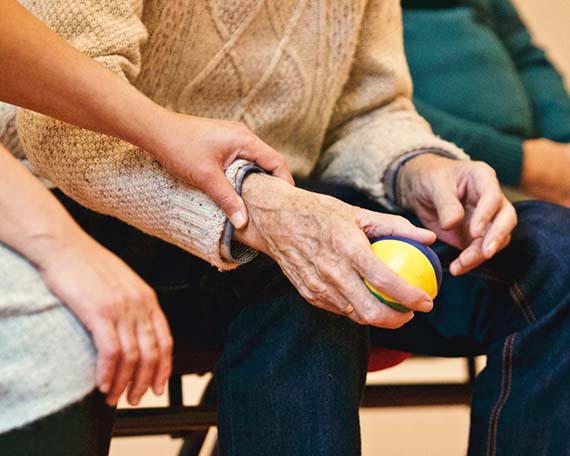Most Important Questions to Ask When Visiting a Care Home

Choosing the right care home for a loved one is one of the most important decisions you will make. Whether you are looking for a nursing home, a residential home, or a facility with additional services, it’s essential to ensure that the care home meets both the physical and emotional needs of the prospective resident. A visit to the care home in question is an important step in making this decision, as it offers a unique opportunity to get a feel for the environment, meet the staff, and ask the right questions.
To make this process easier, we’ve compiled a list of the most crucial questions to ask when visiting a care home. Asking these questions will provide clarity on how the home operates, the level of care provided, and whether the care home will be a good fit for your loved one.
1. What is the care home’s fee structure and how often are fees reviewed?
The financial aspect of care can be one of the most significant concerns when choosing a care home. It’s essential to understand the fee structure before making any decisions. Some care homes may have different rates depending on the level of care required, such as residential care or nursing care.
Ask the care home manager about the costs of services, whether there are additional fees for other facilities, and whether the fees are reviewed on a yearly basis. Understanding this will help you plan for the future and avoid any surprises down the road. Also, be sure to inquire about how fees are paid and if there are any financial assistance programs available for those who qualify.
2. What services and facilities are offered?
Good care homes offer more than just a place to live—they offer a variety of services and facilities that improve the quality of life for their residents. Ask about:
- Daily activities: What types of activities are provided on a daily basis? Are these activities tailored to the residents’ abilities and preferences?
- Communal areas: What common spaces are available for residents to spend time in? Are they comfortable and accessible?
- Specialised services: Does the home cater to specific needs such as sensory impairments or advanced end of life care? Understanding how the home accommodates different care needs can give you confidence in its ability to provide tailored support.
3. What is the staff-to-resident ratio?
The staff-to-resident ratio is an important factor in determining the level of care that your loved one will receive. A lower ratio typically means more individual attention and a higher quality of care. Ask how many care staff are on duty at any given time and how this ratio is maintained throughout the day and night. It’s also helpful to ask about the qualifications of the staff, including whether they are trained in specific care needs such as dementia, palliative care, or sensory impairments.
4. Can residents bring their own furniture and personalise their room?
It’s important for a prospective resident to feel at home in their new environment. Some care homes allow residents to bring their own furniture or decorations to personalise their room, which can help ease the transition. Ask if the home encourages residents to bring personal items, including small pieces of furniture, photos, or mementos, to make their room more familiar and comfortable.
5. What is the food like, and can dietary needs be catered for?
Food is an important part of life in a care home, and it’s essential that residents’ dietary needs are well catered for. Ask the care home about their menus and whether they accommodate special dietary requirements, such as for diabetics, vegetarians, or those with food allergies. It’s also useful to know if residents have any say in the menu and whether meals change regularly to offer variety.
Additionally, ask about the dining experience: Where do residents eat, and are they encouraged to eat together in a communal setting? It’s essential that meals are both nutritious and enjoyable for residents.
6. What are the visiting hours, and can family members and friends visit easily?
One of the most important factors in ensuring a loved one’s happiness in a care home is maintaining close connections with family and friends. Ask about the home’s visiting hours and how flexible they are. Are family members encouraged to visit? Can they come at any time, or are there restrictions on when visitors are allowed?
It’s also important to find out if there are enough parking spaces for visitors. If the home is in a busy area, adequate parking can be an issue for family members who want to visit frequently.
7. What is the procedure for emergency situations or end of life care?
In the event of an emergency, you need to know that the care home is equipped to handle it. Ask the care home manager how they deal with medical emergencies and whether they have the appropriate resources, such as 24-hour nursing staff or a connection with nearby hospitals.
If your loved one requires end of life care, it’s essential to understand the home’s approach. Does the care home provide palliative care services? How do they handle situations where a resident’s health is in decline? Knowing that the home is prepared for such challenges can provide peace of mind.
8. What is the process for moving in, and how much notice is required if a room becomes available?
Moving into a care home can be a significant transition, and it’s important to understand the logistics involved. Ask about the notice period for moving in, and find out if there is a waiting list. If there is one, how long is it? Knowing the procedure for moving in, as well as any required paperwork or advanced notice, can help you plan for the transition smoothly.
9. How do you support residents’ independence?
While care homes provide the support that residents need, it’s also important that residents are encouraged to maintain their independence. Ask about the balance between support and autonomy. Do residents have the freedom to make their own choices, such as when they wake up, what they wear, or what activities they participate in?
Encouraging independence can help boost residents’ mental and emotional well-being, so it’s worth finding out how the care home fosters this.
10. How are residents involved in decision-making?
It’s crucial that residents feel like active participants in their own care. Ask about how residents are involved in decisions about their care. Do they have regular meetings with care staff to discuss their needs and preferences? Can they communicate easily with staff if they have concerns? A good care home will ensure that residents’ voices are heard and that they feel involved in their own care.
11. What is the first impression of the care home?
First impressions are often an indicator of how well a care home operates. When you visit, take note of the cleanliness, the friendliness of the staff, and the overall atmosphere. Is the home welcoming? Do the staff seem attentive and caring? The way you feel when you first enter the home can tell you a lot about the type of care your loved one will receive.
12. What are the rules regarding pets and bringing personal belongings?
Many people feel comforted by the presence of their pets, and some care homes allow residents to bring their pets or even offer pet therapy sessions. Ask about the rules surrounding pets and whether residents are encouraged to bring their beloved animals with them. Also, inquire about other personal belongings—can residents bring their own furniture, or is there a limit to what they can bring into their room?
13. Are there opportunities for socialising and outings?
A good care home will offer opportunities for residents to engage in social activities and outings that promote interaction with others. Ask about the social environment within the care home. Are residents encouraged to spend time with one another? Are there regular trips or day outings for residents to enjoy?
Inquiring about how the care home helps residents maintain social connections can be vital to their well-being and happiness.
14. How does the care home communicate with family members?
Regular communication between the care home and family members is vital in keeping everyone informed about the health and well-being of the resident. Ask how the care home keeps family members updated on their loved one’s condition. Is there a point of contact, such as a care coordinator, who can provide regular updates? Are family meetings held, or are there newsletters or other communication tools in place?
A good care home will make communication easy and transparent, allowing families to feel involved in the care of their loved ones.
15. How do you support residents with mental health or cognitive conditions?
For many care homes, residents have a variety of mental health and cognitive conditions, such as dementia or anxiety. It’s important to ask how the home supports these residents. What types of therapy or activities are in place for residents with dementia or those who experience confusion or anxiety? Does the home have trained staff to manage mental health conditions, and are there spaces within the home designed for relaxation or sensory stimulation?
Making the Right Choice: Your Care Home Visit
Choosing a care home for a loved one is an emotional and important decision, and asking the right questions during your visit will help you make an informed choice. The answers you receive will give you insight into the care provided, the atmosphere of the home, and how well the staff are equipped to meet the needs of residents.
At Templeton House Care Home, we understand that choosing the right care home is a significant step in ensuring your loved one’s well-being and happiness. Our team is committed to providing the best care possible and supporting our residents in every aspect of their life. If you are considering a care home for a loved one, we invite you to visit and speak with us directly about any questions or concerns you may have. We look forward to meeting you and helping you find the best home for your loved one.






